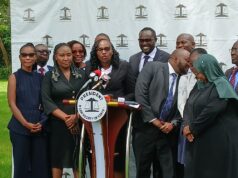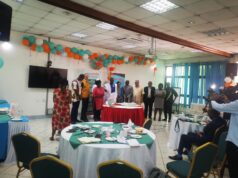The National Bureau of Statistics declined to comment on how churches fit into their GDP figures, but a source there said they were included as “non-profit”, which falls under “other services” in the latest figures. In 2013, the category contributed 2.5 per cent of GDP, the same as the financial sector.
A former banker at Nigeria’s United Bank for Africa , who declined to be named, recalled being approached five years ago by a church that was bringing in $5 million (Sh446 million) a week from contributions at home or abroad.
“They wanted to make some pretty big investments: real estate, shares,” he said. “They wanted to issue a bond to borrow, and then use the weekly flows to pay the coupon.”
In the end, he said, the bank turned down the proposal on ethical grounds.
In 2011, Oyakhilome was investigated by the Economic and Financial Crimes Commission and charged with laundering $35 million (Sh3.5 billion) of contributions to his church in foreign bank accounts. He denied all wrongdoing and the case was dismissed for lack of evidence.
Oyakhilome was not available for comment and Joshua’s media team declined a request for an interview with him.
Several mega pastors
Aneke Chika, a business analyst in an oil services company, told Reuters on the steps of Oyedepo’s church she set aside 20,000 naira (Sh10,829) of her 200,000 naira (Sh108,290) salary every month.
But with an election coming up in February, it is debatable whether President Goodluck Jonathan, who is close to several megapastors, would risk upsetting these influential men and their hefty congregations with a fat tax bill.
“There is no single government input on this premises,” Oyedepo said. “We supply our water, we make our roads, then you … say: ‘Let’s tax them’. For what?”



